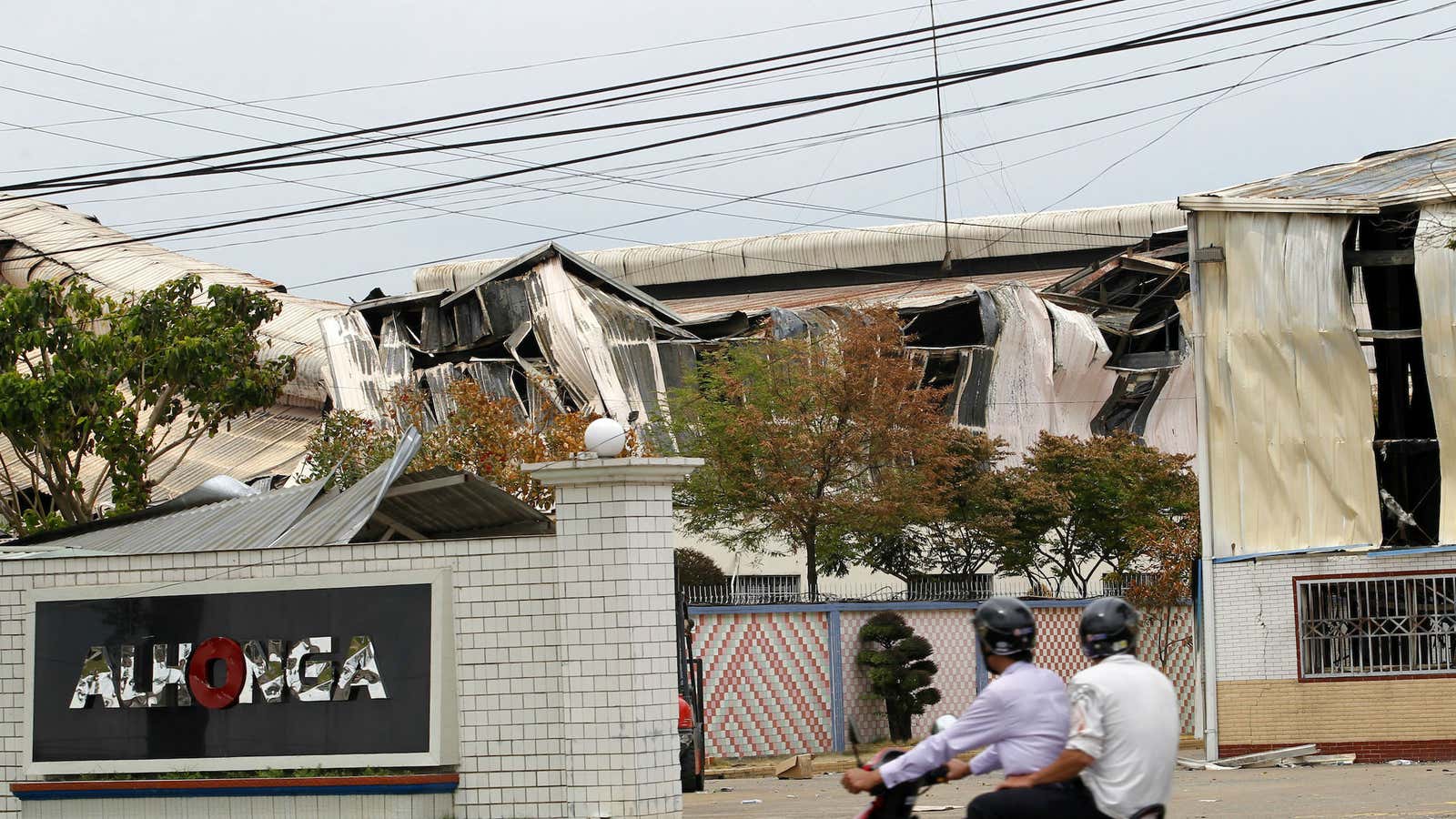What will the ultimate costs be for Vietnam’s deadly riots? Taiwanese businesses bore the brunt of riots triggered last week when China parked an oil rig in disputed waters, and now they are seeking compensation for the loss of life and property, along with assurances that Hanoi will be able to provide security when—or if—the factories re-open.
Taiwan’s government yesterday rejected a proposed compensation plan (paywall) from Vietnam for damage incurred by hundreds of Taiwanese factories, and is sending Shen Jong-chin, Taiwan’s vice minister of economic affairs, to Vietnam to negotiate further.
The tense talks underline the risk—one of several facing Vietnam—that the country’s fourth-largest investor may pull out entirely because of protesters who couldn’t—or at least chose not to—distinguish between businesses and nationals from mainland China and those from Taiwan. “We kept telling the rioters that we are Taiwanese, not Chinese, but they wouldn’t listen,” the head of a Taiwanese business association” told Vietnamese television (paywall) last week.
Taiwan is one of Vietnam’s largest investors, behind only Japan, South Korea, and Singapore. Last year, Taiwan invested $1.2 billion in Vietnam, accounting for a third of Taiwan’s outbound foreign direct investment. The two countries have a generally friendly relationship—though Taipei also claims some disputed areas in the South China Sea, it has been on the sidelines of China’s dispute with Vietnam and rejected the idea of cooperating with Beijing on the issue.
But now, there’s a possibility that some of the more than 200 Taiwanese factories that were attacked last week may not return. According to the Financial Times, 161 Taiwanese firms (paywall) in the southern province of Binh Duong were damaged, versus 11 from mainland China. (A smattering of Japanese and South Korean firms also came under fire.) Asama, a bicycle manufacturer from Taiwan, has moved all production back to Taiwan from Vietnam and said it was reviewing its investment plan in the Southeast Asian country.
Formosa Ha Tinh Steel, which is building what would be Southeast Asia’s largest steel mill in Vietnam, is also reconsidering. “The Vietnamese government must give us a firm and clear assurance that our staff, including our contractors, and our assets will be fully protected in the future,” Formosa chairman Lin Hsin-I told the Wall Street Journal. “Otherwise we won’t continue to build the plant.”
Meanwhile China said its state-owned China Metallurgical Group Corporation, which had more than 3,500 workers at the under-construction Formosa steel mill, had four die during the rioting, along with 23 who were seriously injured..
“The Vietnamese government should learn a lesson and take effective measures to protect the safety of Chinese institutions, enterprises and personnel still remaining in Vietnam,” said Qin Gang, a foreign ministry spokesman, in a press briefing. “It should also compensate the Chinese government, enterprises and personnel for their losses.”
